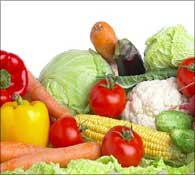 The new Wholesale Price Index series with a revised base of 2004-05, an updated product portfolio and increased data points will understate food inflation, as the weight accorded to primary articles will see a significant decrease from the current 22.02 per cent to around 10 per cent.
The new Wholesale Price Index series with a revised base of 2004-05, an updated product portfolio and increased data points will understate food inflation, as the weight accorded to primary articles will see a significant decrease from the current 22.02 per cent to around 10 per cent.
The new series, expected to be out by October, will see a significant increase in the weightage for the manufactured products category to around 80 per cent from the current 63.75 per cent.
Therefore, the point to point inflation rate derived from this index on a year-on year basis will be driven by wholesale prices of manufactured products rather than commodities like rice, cereals, pulses and wheat, which form a part of the essential consumption basket.
Many economists feel the current WPI series, with a base of 1993-94, already understates food inflation. This has come to the fore since the headline inflation rate as measured by WPI has displayed a consistent downward trend since November 2008, moving into the negative domain in May 2009, though food inflation continued to be in the range of 7-10 per cent.
Moreover, the divergence between WPI and CPI-based inflation also reached historic levels, with CPI inflation at near double-digit levels and WPI inflation at sub-zero. This was also due to the lesser weightage given to food items in the WPI, though the CPI has around 50 per cent representation of food items in its index.
Economists argue that an understatement of food inflation in the major inflation indicators will mislead the direction in which prices are moving; however, it will not have any major effect on the formulation of monetary policies.
"If the weight of primary articles do go down, then the divergence between CPI and WPI will continue and might increase further. The WPI-based inflation rate, which is followed more widely than CPI, would of course be a little misleading for the common people. However, as increase in food prices is related to supply side problems and monetary policy generally pertains to the demand side, there should not be any major effect on the policy making front," said Subhada Rao , chief economist with YES Bank.
The weights in the respective data series are calculated by the share of specific sectors in the growth rate or gross domestic product figures. The contribution of agriculture in the GDP has been on the decline and, therefore, the weight of food products in inflation indices are also going down.
"The changes are made in accordance with the contribution of different sectors to the GDP figures. The share of agriculture has been going down. The idea is that the effect of an item on the inflation rate is in accordance to its contribution to GDP. The weight of food items in CPI will also see a drop as the base is revised," said Pronab Sen, chief statistician of India.
Agriculture contributed around 32 per cent to the GDP in 1990-91; its share went down to 20 per cent in 2005-06 and now stands at around 16 per cent. The trend continues and as the GDP base is also set to be revised, the share of agriculture is expected to contract further.
The weight of the primary article category was reduced by around 10 percentage points to 22 per cent when the base of the series was revised from 1981-82 to 1993-94, as the manufacturing sector started making a major contribution to growth.





